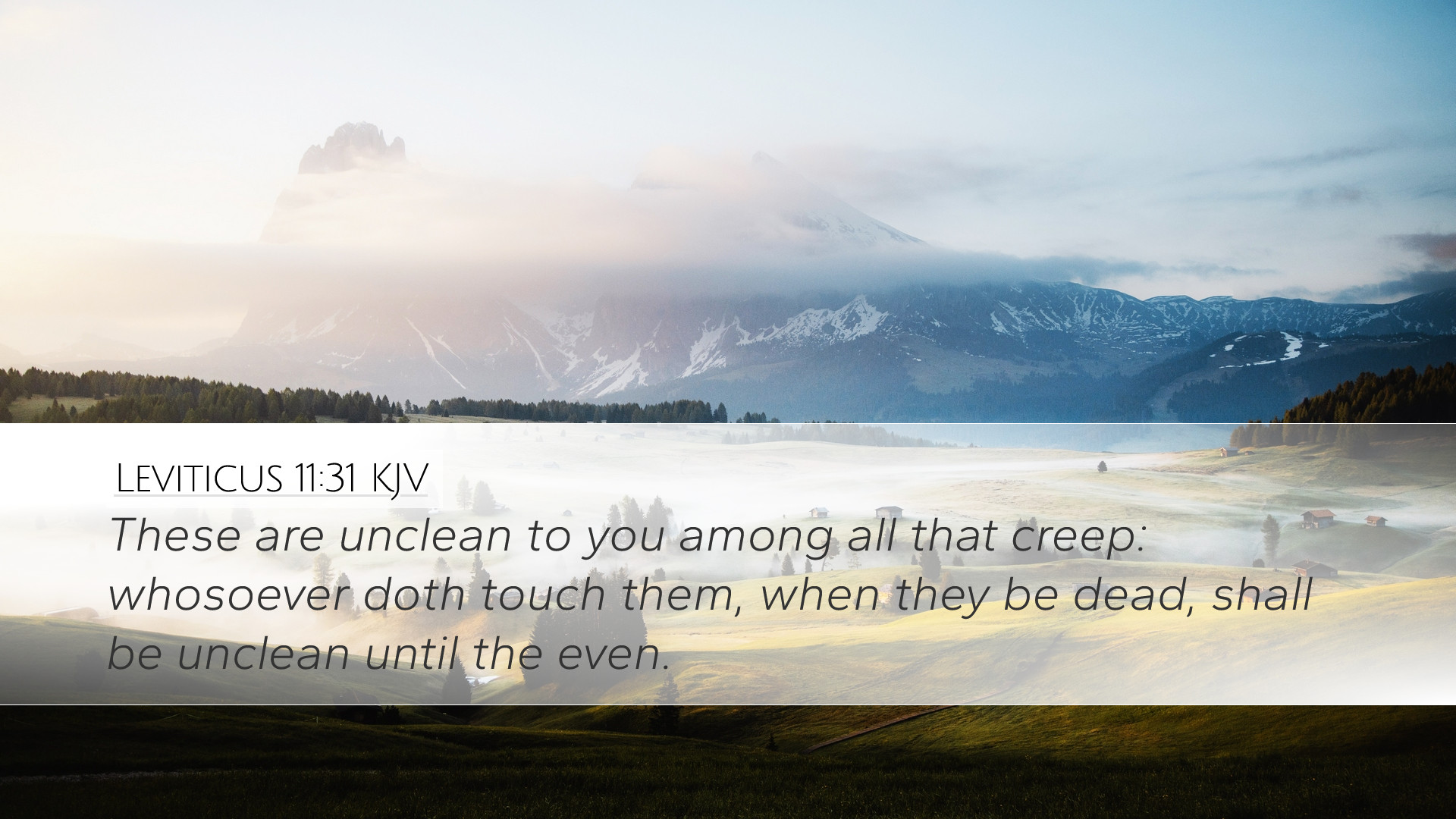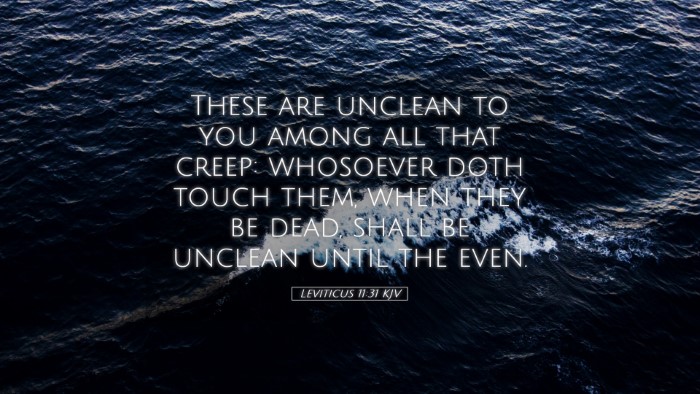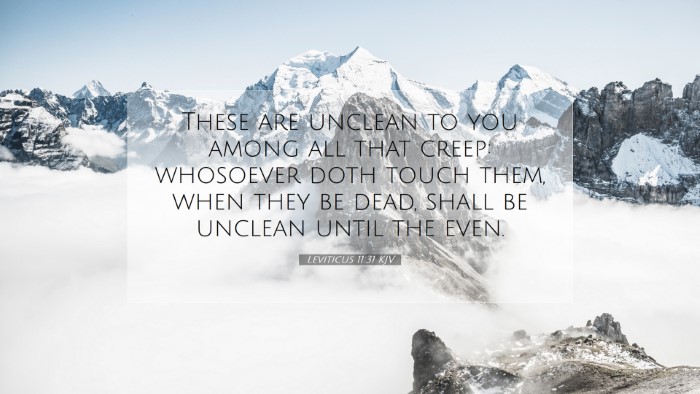Commentary on Leviticus 11:31
Verse: "These are unclean to you among all that creep: whosoever doth touch them, when they be dead, shall be unclean until the even."
Leviticus 11:31 speaks directly to the laws concerning clean and unclean animals, particularly focused on creatures that creep upon the earth. This pivotal verse highlights the significance of ritual purity within the community of Israel.
Understanding the Context
Holiness and Separation: The book of Leviticus is centered around the themes of holiness and separation, reflecting God's desire for His people to be distinct from the nations around them. These laws, including the dietary restrictions, were integral in maintaining Israel's identity as God's chosen people.
Insights from Notable Commentaries
Several prominent commentaries provide valuable insights into this verse and its implications.
Matthew Henry's Commentary
Matthew Henry emphasizes the importance of the ceremonial laws and their role in teaching the Israelites about purity. He notes that the laws regarding clean and unclean animals serve two purposes: they promote hygienic practices and they instruct the people about spiritual cleanliness. Henry points out that the classification of certain creatures as unclean serves as a moral and spiritual lesson about the need for separation from sin and impurity.
Albert Barnes' Notes on the Bible
Albert Barnes elaborates on the nature of creeping things and their classifications. He remarks that all forms of life are created by God and have a purpose, yet some of these serve as reminders of the fallen state of creation. Barnes points out that touching a dead unclean animal rendered an individual unclean until evening, reinforcing the idea that spiritual contamination can occur through association with death and decay, symbolizing sin.
Adam Clarke's Commentary
Adam Clarke takes a comprehensive approach, detailing the implications of physical touch and the idea of ritual cleanliness. According to Clarke, the restriction on touching dead unclean creatures emphasizes purity, illustrating how contact with death (representative of sin) leads to a state of unholiness. He also notes that the timings (until the evening) indicate the process of restoration and redemption, as evening represents a time of transition where individuals could subsequently be made clean.
Theological Reflection
This verse serves as more than a mere dietary guideline; it is a spiritual metaphor for the believer. Understanding the distinction between clean and unclean reflects the need for the church today to evaluate what it consumes—not just physically, but spiritually and morally. As believers engage with the world, it is essential to discern what aligns with God’s holiness and what does not.
Practical Applications for Today’s Believers
- Spiritual Discernment: Just as the Israelites were to avoid unclean animals, believers are encouraged to seek purity in what they engage with daily, scrutinizing the content and influences in their lives.
- Community Awareness: The impact of individual choices on the community is vital. Engaging with harmful ideas or practices can lead to a corporate spiritual uncleanliness, reminding believers of their influence on collective holiness.
- Emphasizing Christ's Cleansing Power: This verse reminds believers of the importance of Christ’s redemptive work in making them clean. As they navigate life's challenges, the understanding of being cleansed by His sacrifice is foundational.
Conclusion
Leviticus 11:31 teaches profound truths surrounding purity and the need for separation from sin. By integrating teachings from respected commentators, one gains a multifaceted understanding of the text's implications, both in the ancient context and its relevance today. Therefore, as modern believers encounter this scripture, it is crucial to reflect upon its message regarding holiness, discernment, and the transformative power of Christ that cleanses us from all unrighteousness.


